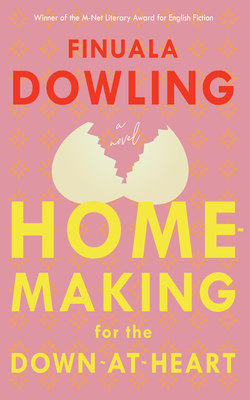Читать книгу Homemaking for the Down-At-Heart - Finuala Dowling - Страница 5
На сайте Литреса книга снята с продажи.
ОглавлениеMargot stood beside the bed and looked down at her pillow. She was back – oh glory, she was back at the mattress. Time really did pass. It lifted heavy events and moved them away: a kind of temporal soil creep.
Curtis was asleep. He’d folded the blanket so that it covered her side but not his – he needed only a sheet. She still felt astonished by his considerateness. She’d thought all men would turn out to be Leroy eventually. Margot lifted the bedclothes as quietly as she could. Even so, Curtis was immediately awake, reaching for his knife. He saw her and relaxed. Although the room was dark, she knew exactly the expression of self-deprecation on his face, the look that said: Forgive me, you know I am a fool.
“Did you have a good show?” he asked as he eased back onto the pillow.
“The usual,” she whispered. “The ones who don’t love me always phone first. One guy suggested that I kill myself on air.”
“I’d like to kill him, the bastard,” murmured Curtis. He held her till she was warm, then reluctantly let her go.
She curled up, desperate to hook her sleep onto this last hour of darkness. But the night’s programme insisted on replaying itself in her head. Why had she been so ungracious to her first callers? Why did she stoop to their level? I will if you will – that would come back to her as surely as acid reflux. Why didn’t she take the whole thing slower, easier; trust that Truman and the others would eventually phone in with something comical, absurd or philosophically acute? She was supposed to know how to broadcast, but in truth she felt quite unrelated to each successful programme. The duds, on the other hand, were unquestionably her spawn.
Stop talking about yourself. Why not kill yourself on air? All she’d asked was what they thought it was all about, life. Why do we carry on? It was a valid question. Are we here merely as cheerleaders for our children? Pretending to our sons and daughters that their lives will turn out to be meaningful and satisfying, when in fact they’ll end up wishing their lives away in unrewarding jobs. And then, just when they have some modicum of success, they’ll be obliged to care for us, their parents, now in our dotage and needing our nappies changed, and there will be yet more wishing away of time.
Of course the people who phoned in did not agree. They thought it a privilege to care for their sick and their dying. Daughters looked after their mothers for years and then, when their mothers finally died, their mothers-in-law. They felt bleak, yes, but also righteous.
Driving home from New Century Media on the deserted freeway she’d thought about how – perhaps not in the mansions on the mountain slopes, but down on the vast flats, in the suburbs that clung to the railway line – every second, third or fourth home housed an invalid of some kind. These were modern-day monasteries, with soft-footed carers who sluiced out potties, puréed food and turned the bedridden at appointed hours.
Even Truman, her stalwart, had his father living with him, or rather dying with him – it was bowel cancer, he’d told her tonight. Only dagga helped, said Truman, “and I’m not talking about the patient.”
She’d thought about what waited for her at home. Even at that pre-dawn hour, her mother might be awake, wandering about the house, seeking the type of care Margot’s callers gave so selflessly. She could not do it. Margot did not have a vocation, and she lacked empathy. If only she could have her old self back, the one who tiptoed namelessly down sloping paths between beach grass, hating no one. Surely she’d had a self like that once? She didn’t want to be this full of spit, hiss and hit. From tomorrow (or rather, later today), she would practise being nice to people; she would speak in the elided language of obituaries. Lovely, she would be lovely.
